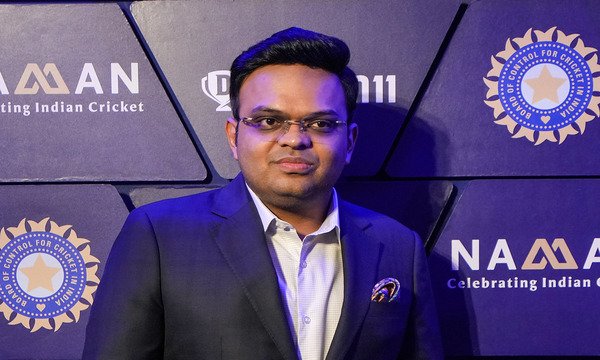The Unstoppable Rise
Jay Shah’s journey from the grassroots of cricket administration to becoming the ICC Chairman is nothing short of remarkable. This young and dynamic leader has not only taken Indian cricket to new heights but has now garnered the overwhelming support of the global cricket community. In a world where politics and divisions often rule, Shah’s rise to the top was met with an almost unprecedented level of unity among the members of the International Cricket Council (ICC). But how did this all happen? And what does it mean for the future of cricket? Let’s dive into the story of Shah and his meteoric rise.
A United Front: Shah’s Election as ICC Chairman
In the complex world of international sports governance, getting elected as the ICC Chairman requires more than just ambition. It demands a significant amount of support from the board members. The ICC board currently consists of 16 members, and to win the Chair, a candidate needs to secure nine votes—a simple majority. However, the level of support Shah received during his election was nothing short of historic. Backed by 15 out of the 16 current directors during the nomination stage, Shah’s election was a foregone conclusion. The fact that there was no need for an actual vote speaks volumes about the confidence the global cricketing community has in him.
In comparison, previous Indian leaders like Jagmohan Dalmiya, Sharad Pawar, N Srinivasan, and Shashank Manohar, all struggled to secure the kind of unanimous support Shah has received. Dalmiya had to rely on votes from Associate nations and the Asian bloc, while Pawar faced stiff competition from Australia and New Zealand, who were rooting for John Howard. Even Srinivasan, one of the architects of the controversial Big Three arrangement, couldn’t align all the boards in his favor. And while Manohar did manage to gain global support, questions about his relationship with the BCCI persisted.
The Youngest and Brightest: Shah’s Historic Rise
At just 35, Shah has become the youngest ever to lead the world governing body of cricket, a feat that is as remarkable as it is inspiring. His swift rise to prominence within the ICC is a testament to his leadership qualities and his ability to foster trust among his peers. Sunil Gavaskar, the legendary Indian cricketer, aptly noted in a recent column that Shah’s leadership will benefit players worldwide, just as he has done for Indian cricket.
Cricket at the Olympics: A Legacy in the Making
Perhaps Jay Shah’s most significant contribution to global cricket so far has been ensuring the sport’s entry into the Olympics. This achievement might just be his lasting legacy, setting him apart from his predecessors. Historically, the Board of Control for Cricket in India (BCCI) had resisted joining the Olympic fold, fearing it would compromise their autonomy, particularly concerning the Indian Olympic Association (IOA). But Shah, with his forward-thinking approach, saw the bigger picture. He understood that taking cricket to the Olympics would open up new avenues for the sport, globally and domestically.
Without the BCCI’s backing, cricket’s Olympic debut would have remained a distant dream. Shah’s ability to see beyond the traditional concerns and focus on the broader interest of the sport is a testament to his vision. The Olympics will not only bring cricket to a global audience but also ensure its growth in regions where it has yet to establish a significant foothold.

Transforming Indian Cricket: Shah’s Achievements at BCCI
At the domestic level, Jay Shah’s impact as the BCCI Secretary has been profound. Since taking over in 2019, he has consistently prioritized the development of the sport in key areas. Whether it’s establishing a state-of-the-art high-performance center in Bengaluru, creating a distinct identity for women’s cricket, or advocating for the primacy of Test cricket, Shah’s achievements are extensive.
One of his most significant challenges came during the Covid-19 pandemic, a period when most of the world came to a standstill. Yet, cricket in India continued to thrive. Shah managed to navigate these unprecedented times with remarkable success, overseeing multiple international home series and two seasons of the Indian Premier League (IPL) within a strict bio-secure bubble. His ability to keep the sport going in such challenging circumstances speaks to his exceptional administrative acumen.
Women’s Premier League: A Game-Changer
A landmark decision during Shah’s tenure at the BCCI was the launch of the Women’s Premier League (WPL). This was not just a significant move for Indian cricket but a groundbreaking moment for women’s cricket globally. The league’s franchises were sold for a staggering Rs 4,669 crore, and the media rights fetched an additional Rs 951 crore—figures previously unheard of in women’s sports. This achievement came on the heels of the Rs 48,390 crore valuation for the IPL media rights, further solidifying Shah’s reputation as a visionary leader.
Shah’s Roots: From GCA to BCCI
Jay Shah’s journey began at the grassroots level in 2009 when he started working with the Central Board of Cricket, Ahmedabad (CBCA) and the Gujarat Cricket Association (GCA) as an executive. His work during this period laid the foundation for his future successes. In 2013, he became the joint secretary of the GCA, where he played a pivotal role in the construction of the Narendra Modi Stadium in Ahmedabad, the world’s largest cricket ground. His administrative skills were further honed during his time at the GCA, preparing him for his eventual role as BCCI Secretary.
Under Shah’s leadership, Indian cricket has witnessed one of its most successful periods, including the recent T20 World Cup triumph. Perhaps more importantly, the BCCI, an organization often known for its internal divisions, remained solidly united during his tenure. This unity within the BCCI has been crucial in maintaining India’s dominance in world cricket.
Test Cricket: Preserving the Tradition
One of the biggest challenges Shah faces as the ICC Chairman is ensuring the ongoing success of Test cricket. While T20 cricket has brought excitement and commercial success to the sport, Test cricket remains the bedrock of the game. Shah has expressed his commitment to ensuring that this tradition is not lost. He understands that while the shorter formats of the game are popular, Test cricket offers a unique challenge that defines the true spirit of the sport.
Looking Ahead: Shah’s Vision for Global Cricket
As the new ICC Chairman, Shah has outlined his priorities, and they reflect his commitment to the growth and development of the game on a global scale. One of his key goals is to ensure that cricket returns to the Olympics at the 2028 Summer Games in Los Angeles. This would be a monumental achievement, not just for Shah but for the sport as a whole.
Shah also recognizes the importance of supporting women’s and differently-abled cricket. Earlier this year, the ICC Board committed to expanding the ICC T20 Women’s World Cup to 16 teams by 2030, but Shah believes that more focus is needed in these key areas to lift the sport to new heights.
Conclusion: The Future Under Shah’s Leadership
Jay Shah’s rise to the top of the cricketing world is a story of vision, leadership, and unity. From his early days in cricket administration to becoming the ICC Chairman, Shah has consistently demonstrated his ability to drive change and foster growth. His commitment to the sport, his ability to unite different factions, and his vision for the future make him the ideal leader for cricket’s next chapter.
As he takes on this new role, the cricketing world can look forward to a period of innovation, expansion, and development. With Shah at the helm, the future of cricket looks bright, and the sport is poise to reach new heights, both on and off the field.







